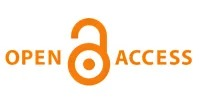Navigating Pedagogical Paradoxes and Epistemic Dissonance: An Indian Social Science Perspective on Challenges in Education Policy and Praxis in the Digital Epoch
DOI:
https://doi.org/10.65579/sijri.2025.v1i2.04Keywords:
Social Science, Education, Epistemic Dissonance, Algorithmic Learning, Cognitive Automation, Technological Determinism, Heuristic Learning, Indigenous Pedagogical Frameworks.Abstract
Evaluating the interplay of technological coherence: The interplay of the policy flux delineates the pedagogical paradoxes and epistemic dissonance in the socio-historical paradigm of education in India that may be clarified by the social scientific deconstruction of conceptual synergy of technological acceleration: policy praxis: social science and education. This study uses a qualitative research methodology which draws on critical discoursen and empirical survey research to examine the implications of technological determinism for student and teacher-mediated epistemic engagement practices. This estheticisation - the fruits of which are already visible in a widening rift between grassroots learning and academic formalisation - points to a waning of dialectical reason and an atomised interdisciplinarity: a dialectical balance between digital openness and traditional epistemology is needed to preserve the integrity of social science research. It calls for syncretic integration of AI-based educational solutions with indigenous pedagogical frameworks to nurture the contextual and resilient knowledge ecosystem in the Indian academia and pave the way for an equitable and transformative multi-layered pedagogical system.
Downloads
Published
Issue
Section
License
Copyright (c) 2025 Scriptora International Journal of Research and Innovation (SIJRI)

This work is licensed under a Creative Commons Attribution 4.0 International License.












